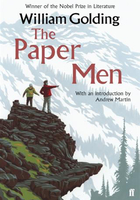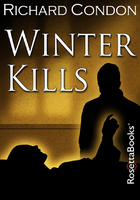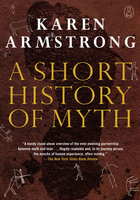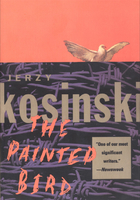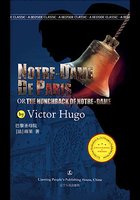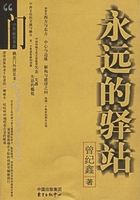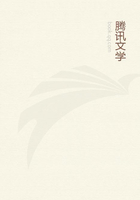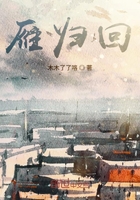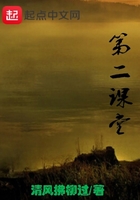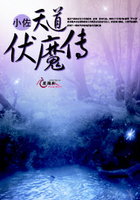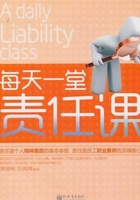Accepting Organizations for What They Are
Organizations loom large in our lives. They lift and move us; they feed and drape us; they brand us with their swoops and stripes; they color all that we do. They pool the talents of tens of thousands of people so we can have the drink, music, flight, movie, education, check, or drumstick when we want it and how we want it. They hold out the comfort, clarity, and convenience; the peace, peril, and power; the security, seduction, and satisfaction we are looking for. They offer themselves, their products and services, as if there were nothing in the world more important than meeting our needs. And they serve themselves while serving us.
And we feed them. With every credit card, bus pass, tax payment, welfare check, and Internet transaction, we nourish their lives. Willingly or begrudgingly… we affirm their continued existence; we declare our dependence. And of course, we are them. We form their ranks as employees; we make their purpose our own for our best hours each day. And to rest up or escape from our employers, we consider the alternatives offered by other organizations, whether it's a movie at the multiplex, franchise food, or a cruise of the Caribbean. Wherever we turn, there they are with their enlightenment, enticement, and encouragement. Our world offers us choices among organizations, and we'd rather not choose to do without them. The proclamations of individuality, independence, and self sufficiency are lost as we converge on the malls, embracing the latest trend in eyewear, footwear, and four-wheel-drive hardware. Those few people who opt out are notable because they are such an exception—and we act like they are just a little bit crazy.
Imagine a future world without large organizations. Imagine making your clothes, growing your food, heating your home, walking to work. Step back a century and you will find most people in the Western world doing just that. In less than a hundred years, we have shifted our lives from supporting ourselves to relying on large organizations to support us. We are so caught up in the reality of these huge creatures that we cannot imagine a world without them. Look at the labels on your clothing; where does it come from? And this book you are reading? And your telephones? And the carpet, the lamp, the computer? Was your computer keyboard carved from wood by a Vermont craftsman? Hardly. Organizations, many organizations in many countries, cooperated so you could have that keyboard, that carpet, those clothes.
These organizations were created in service to dreams. Behind every organization are the people who imagined it. They created these creatures to multiply and accelerate themselves. Organizations are cauldrons of power, heat, intelligence, intensity, equipment, and emotion. Mysterious in their makeup and behavior, they are a wonder to watch and a challenge to guide. So much of what surrounds us is made possible through the cooperation of millions of people in thousands of organizations around the globe. Somehow, organizations help normal, everyday people combine their work in wonderful ways, resulting in products and services that are exceptional. Not always, but often. (I hear a train in the distance, probably a mile long, leaving Seattle headed east, stacked with containers stuffed with toys or tires or televisions, transferred from ships to flatcars, on their way from the Far East to the East Coast, a sixteen-day journey.)
These large organizations are so much a part of our recent past and present, and increasingly central to our future. Consider the communications revolution now engulfing us, creating unimaginable global transformation, and only possible through the interweaving of talent and technology by huge organizations. As these organizations accelerate along their current trajectory, what might they be two or ten or a hundred generations from now? Will they self-destruct? Will they radically alter in shape and purpose? How will they affect our human evolution? These huge organizations loom large in our future; they are necessary to it; they expand our possibilities; they are a blessing.
And…
They are a curse! Organizations often represent the worst of what we can do together. These crazy-making creatures lock people together in mindless structures within rules they don't understand, going places they don't want to go. If someone set out to regularly abuse human talent, spirit, and purpose, they could hardly do better than create some of our organizational structures: corporations, governments, education, social service, churches; no purpose or people are exempt. Sometimes it seems as if we searched centuries for ways of misusing human talent and came up with our authority-worshipping, talent-diminishing, heart-stomping structures. They feed the worst traits of controlling, egotistical leaders, amplifying those traits down through multiple layers of structure. Never have so many capable people produced so much service, profit, product, and stress—with so little fulfillment and happiness. Ancient military models have been refined into machine models and are now becoming even more analytical, precise, and controlling with electronic brains that extend their power further and faster.
Loving Our Dilemmas
There is truth in the blessings and truth in the curses: the spectacle and sterility, the mystery and madness, the continuity and contradiction. The truth of it all intrigues many of us, making organizations irresistible. Whether we are in them as missionaries or mercenaries, many of us love being a part of their huge game. Some of us love helping them recognize a larger purpose beyond this month or this year; we love engaging them in pursuit of their deeper meaning. Or we love to use their power, to bring it to bear on issues important to us. Others of us love to beat up on them, to use them to work out our own issues with power. Our years and years of working in them feed our needs for learning, challenge, recognition, accomplishment, power, stature, and contribution. At least, that is the possibility.
Our hopes for organizations became more vivid and compelling in the latter part of the twentieth century. More people began to see work organizations as a place to seek meaning and create happiness. They saw the possibility that these organizations could succeed and could support the success of the people in and around them: workers, suppliers, customers, families, stockholders, communities, and society. All that is indeed possible—but not in most organizations at this moment. What organizations are now is far short of what they can be. Eventually, it is all possible that our hopes will be realized. It may take lifetimes, but it is possible.
As Winston Churchill said, "First, we shape our structures. Then, our structures shape us." Our forefathers shaped these structures of education, government, the marketplace, religion, over the centuries, and they have shaped us in return. We ask people to fit themselves into these old structures, to sit in their assigned places. But an old structure often lacks the space to accommodate its human occupants. People step into their work spaces and it's not long before they are pushing out at the walls. Or they move in and fully occupy the roles they have been assigned, acquiescing to role expectations that they not be themselves while at work. We are more aware of these kinds of problems today than ever before.
Our highly educated workforce and the tumultuous change in organizations combine to create work dissatisfaction unique to this age. People's expectations of fulfillment are higher than ever before. At the same time, many feel betrayed by large organizations—and we do not know what to do about it. Everybody has an opinion and nobody knows; the villains are everywhere and nowhere. Today it's management; tomorrow it's the union. Today it's the new administration; tomorrow it's apathetic citizens. Or it's elected officials… and then the bureaucracy. Or it's you… no, maybe it's me. Breaking our patterns of finding fault and blaming allows us to see that the answers we need go beyond the battles we wage. The solutions lie more in reforming organizations than in resolving individual conflicts. Even short-term questions have long-term answers.
Those of us who have been working to reform organizations know something about asking questions, about stepping outside of our commonly held notions of the world and opening to new perspectives. Our answers have not formed, but we are learning where to search. Given that the answers are so distant, the search itself must be fulfilling. To make progress, we must love the search itself, apart from the answers we find. Those of us determined to reach the end of this organizational search in our own lifetimes are doomed to frustration and false answers. Generations will pass before the answers become clear. And then, all of the searching likely will lead to discoveries of what was there all along. One of those discoveries will be that the organizational beasts we have alternately blessed and cursed are also the source of the fulfillment we seek. So, why not learn now to embrace them now, with all of their warts, wrinkles, and wonder. We must throw our arms around these crude creatures full of possibility.
What If the World Is Not Broken?
When we see the world in great disarray, it is easy to criticize what's wrong or what needs change. Admit it: Often we are saying, "What this world really needs is a dose of—Me!" But consider: You arrived here a few decades ago, delivered into a world that had already existed a few billion years prior to your transforming presence. Now… You know what's wrong? You are going to fix it? Billions of people before you used similar strategy in attempting to straighten the world's crooked ways. Others may not care or may be oblivious, but you care; you want to change things. But…
What if the world:
is not broken?
is not a chaotic mess at all, but we just don't understand it yet?
is not crying out for us to impose our form of order?
knows more about us than we do about it?
has an order of its own?
What if to some larger mind, all that we are experiencing makes sense?
What if our real task is to find our place in what's been going on here for billions of years?
What if what we see as a "mess" is an invitation to discover ourselves?
This chapter has been about a chorus of questions, respecting and embracing the world as it is, whether in its raw and natural forms like thunderstorms or ocean tides, or its more adapted organizational forms like communities or committees. The world is not crying out for us to control it; many of us are crying out for something to control. The world—including the organizational world—has an order of its own, a "mind" of its own. Our opportunity and challenge is first to understand the world as it is, to wonder at it rather than to control it, to approach it with an awe, open to discovery. Wonder and awe are as useful to the realm of human organizations as to the rest of the natural realm. When we open ourselves to learning about the nature of the world, its organisms, and communities, we can see ourselves and our organizations with new eyes.

